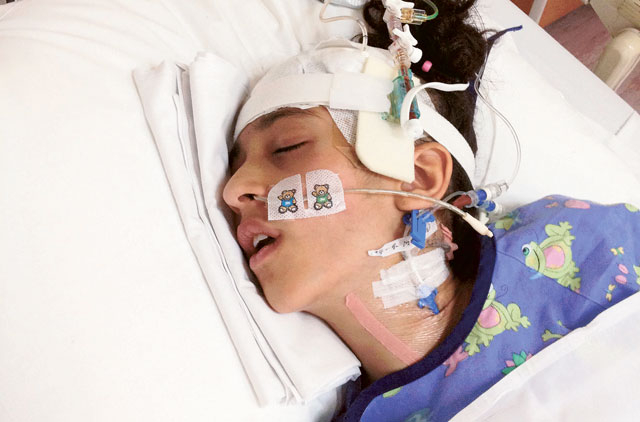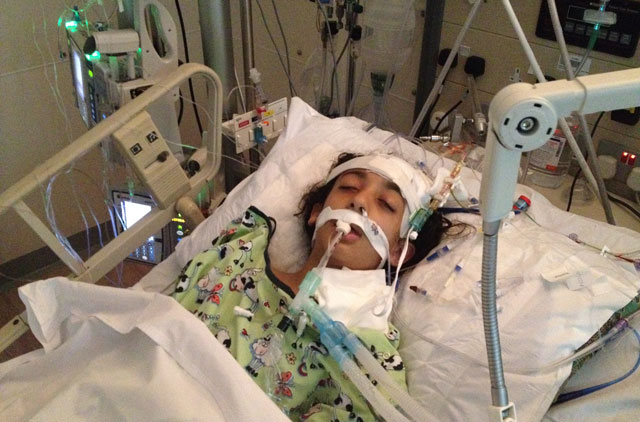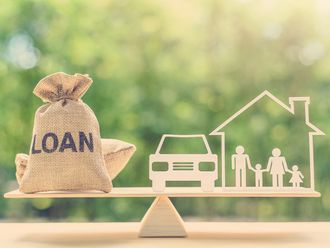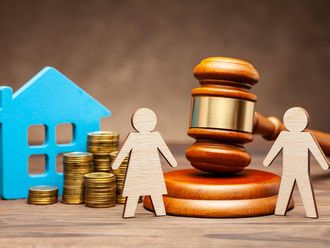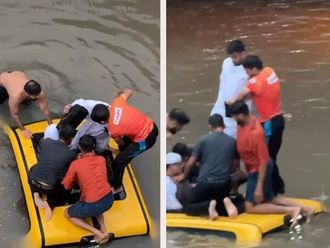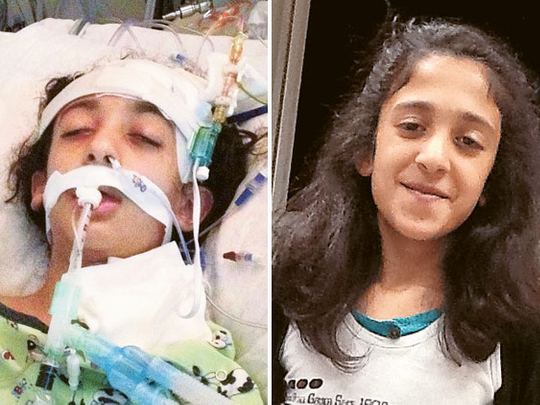
Abu Dhabi: The four boys who reportedly beat 11-year-old Loujain Hussain in school are being monitored closely, according to the principal of the Abu Dhabi institute.
"They [the four boys] are being watched by teachers to make sure that nothing more happens … they are also being kept indoors during recess out of concern for the reactions of fellow pupils," Khadeeja Al Sayyar, principal of Al Ma'ali International Private School, told Gulf News.
"Additionally, the entire Grade 4 section was shifted to a new location closer to the supervisor's office so they can also be monitored," she added. The co-ed school follows an Arabic-American curriculum and its 1,500 pupils are housed in two buildings.
"One building is for pupils in Grade 4 and below, while the older students study in another building," Khadeeja told Gulf News earlier. The principal also clarified that the attack took place in an area of the playground which is reserved for girls and those in Grade 4 and below. "It is one of the more isolated areas … we always have 14 staff members patrolling the entire playground even though there are no security cameras," she said.
History
Loujain, an Iranian expatriate, and her friends were attacked by Grade 4 pupils over a week ago when a minor incident turned violent. In addition to the brain haemorrhage, Loujain is also suffering from swelling of the brain and bruising.
She remains in a medically induced coma at the Shaikh Khalifa Medical City (SKMC). "Loujain is stable, but the doctors are still worried that she is not able to open her eyes. Because of her brain injuries, they had to postpone Loujain's MRI twice to next week," said Mahran, her older brother.
According to L.J., another victim of the tragic incident, the boys have a history of aggressive behaviour at the school. "They always picked on other [pupils] … even the teachers have a hard time controlling them," she said.
But the principal insists that the boys were not aware of the severity of their actions and their consequences.
"They are just young children, only nine or 10 years old … now they are scared to go anywhere because of the negative attention they are receiving," Khadeeja said. The incident is still being investigated by the police and officials from the Abu Dhabi Education Council (Adec).
"We are cooperating fully with the investigation, however, the children involved are constantly changing their stories so we are waiting for the final results [so that we can then take the necessary steps]," the principal said.
"The boys have not been suspended because that can only be done if we receive instructions from Adec … however, it is likely that they will not be accepted for the upcoming academic year," she added.
The boys' parents have requested that their details not be provided to the media. "They do not wish to be interviewed or be contacted at this time. The parents simply want to focus on cooperating with the investigation while sheltering their children as much as possible," Khadeeja said.
Juvenile laws
The experience of Loujain, who was a victim of bullying in school, has drawn attention to a problem that might be significantly more serious than the society had expected.
What does the law say about these situations, and who is held responsible for causing potentially irreversible damage or possibly death?
From a legal perspective, Faisa Mousa, an Emirati lawyer, told Gulf News that violent incidents which lead to severe injuries, handicaps or death are dealt with according to the juvenile law.
"Students above the age of 14 are referred to the juvenile correction facilities for guidance, education and rehabilitation. Students below this age are handed to their parents on condition that they write an affidavit [statement] pledging that they will take care of their children to prevent any future recurrence of such actions.
"Meanwhile, the offending child's family should bear any financial responsibility for the victims' medical treatment and care. They also should pay financial compensation to the victim's family if the family chooses," she said.
A psychologist said that bullying is aggressive behaviour which is intentional and is repeated, possibly frequently, over time.
""Bullying can happen in many ways. Physical — such as hitting or punching; verbal — such as teasing, name calling; emotional — through gestures or social exclusion; non verbal — such as insulting messages, and others," Dr Dolly Habbal, consultant psychologist at Gulf Diagnostic Centre, told Gulf News.
There is not just a single reason that causes children to bully others. It is, rather, a combination of factors and influences from family, peers, school, and the community, which collectively can place a child at risk of becoming a bully. Several reasons can lead to violence among children," Dr Habbal said.
"Children learn by modelling and tend to copy their parents. Some parents demonstrate aggressive behaviour at home, whether husbands towards their spouses or fathers beating their children. So, parents set hostility and aggressiveness as a behavioural model in dealing with people. Other parents are permissive and don't establish rules of conduct at home and don't apply a penalty system either. Television as well plays an influential role on children's behaviour. Movies and even cartoons carry a great deal of violence and blood nowadays, and parents don't and can't supervise every programme," she explained.
Dr Habbal explained that lack of communication between school and home doesn't help sorting out such behaviour either.
"Students who commit such violence definitely have conduct disorder. If a conduct disorder is not treated in a timely manner, it develops into an anti-social personality that is a disorder which can be associated with crimes. People who have an anti-social personality do not have a sense of right or wrong, they have no moral values and are indifferent to other people's needs. Additionally, they don't abide by the society's rules and create and follow their own. All delinquents and psychopathic criminals have an anti-social personality disorder. Once developed it is difficult to correct and takes a long time to treat," she concluded.


